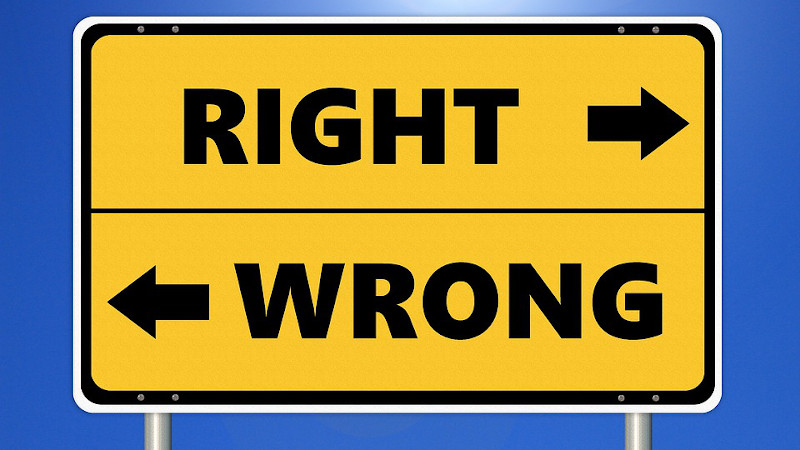The Meaning Of Moral Relativism – OpEd

Moral relativism is the belief that there are no moral absolutes and that right and wrong vary from one individual to another. Accordingly, disagreements about morality are nothing more than expressions of opinion.
This may sound appealing to some, but in practice it is one of the most dangerous ideas ever entertained by man.
If John believes in slavery and Jane does not, by what right does Jane have to outlaw it? If she doesn’t want to own a slave, that’s her business. But she has no right to impose her morality on the rest of us.
What if there were a resolution on a ballot saying that left-handed persons should be the slaves of right-handed persons? Everyone would be given an equal right to vote. What if the left-handers lose? So what? This is a democracy, isn’t it? What right does anyone have to overturn the express will of the majority?
We fought a civil war over slavery. Lincoln’s side prevailed because he appealed to the wisdom ingrained in the Declaration of Independence.
Jefferson wrote that “We hold these truths to be self-evident, that all men are created equal, that they are endowed by their Creator with certain unalienable Rights, that among these are Life, Liberty, and the pursuit of happiness.” This is the heart of natural rights, a concept pioneered by the Catholic Church.
Jefferson spoke of truths, not opinions, that are evident to every sentient human being. Right away the moral relativists lose. They lose because they deny that there are moral absolutes, or truths, about the human condition.
Truth is not a whim or fancy. It is not an opinion. If most voted that gold is really silver, it would have no bearing on the truth. The truth is independent of feelings and preferences.
Every person, Jefferson said, independent of his ascribed or achieved statuses, is created equal. Again the moral relativists lose. They envision a society where it is possible—even if they personally feel otherwise—for some to be masters and some to be slaves. But if everyone was created equal, then master-slave relationships cannot be justified.
Our rights come from God, our Creator. More bad news for the moral relativists. They reject God and believe that our rights come from government. But what the government giveth the government can taketh away. That’s not a happy prospect. However, if God is the source of our rights, then government is obliged to respect them. The government is subordinate to God.
Our rights are unalienable. Once again, moral relativists are on the losing side. If our rights are unalienable, invitations to alienate them cannot be countenanced, which is precisely what slavery would do.
A democracy is a government by, for, and of the people. It is based on majority rule. But in the United States, the minority does not lose its rights because it is outnumbered. That’s why we have a Bill of Rights, ten individual rights that the majority must respect. Following the logic of the Declaration, slavery cannot be justified, and that is because it violates our unalienable right to Liberty. It is not open to a vote.
To be sure, when the nation was founded, with all of these rights secured in law, slavery existed nonetheless. The Founders were realists—they knew that slavery could not be abolished overnight (at that time in history Europe was the only place on earth to ban it)—but they did not walk away from this issue. They gave us the Declaration and the Bill of Rights—the philosophical principles and the constitutional means—to make possible its ultimate demise.
That is what Lincoln leaned on to make his case against slavery. On the other side were the moral relativists like Stephen Douglas, arguing it should be up to the people to decide.
Moral relativism was morally bankrupt then, and it still is. It’s a losing proposition.
